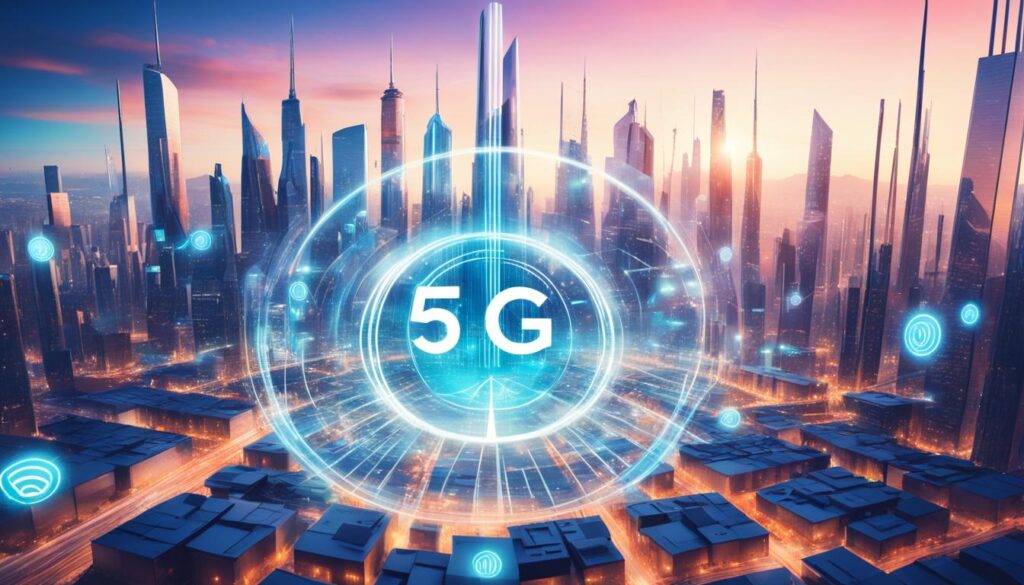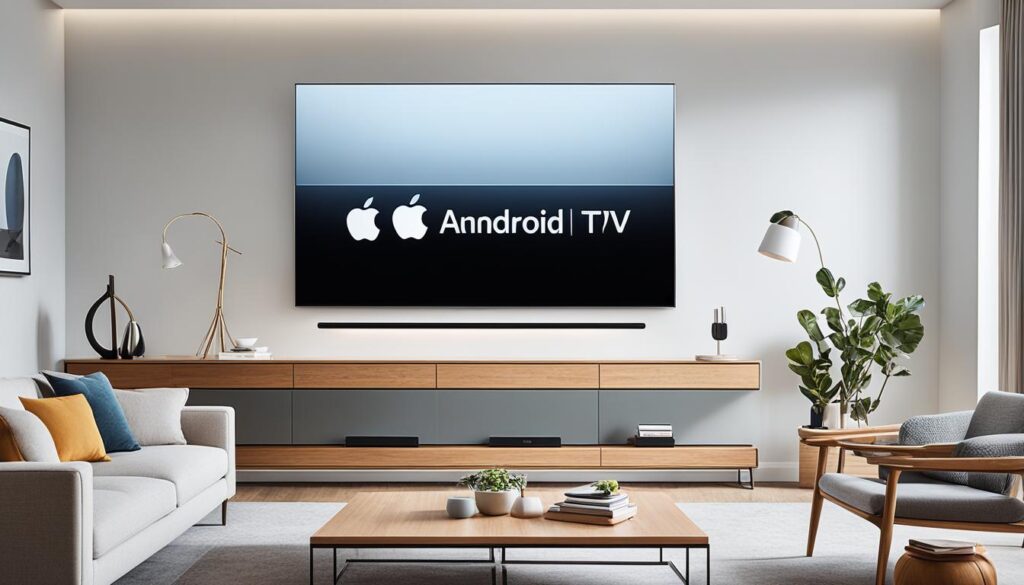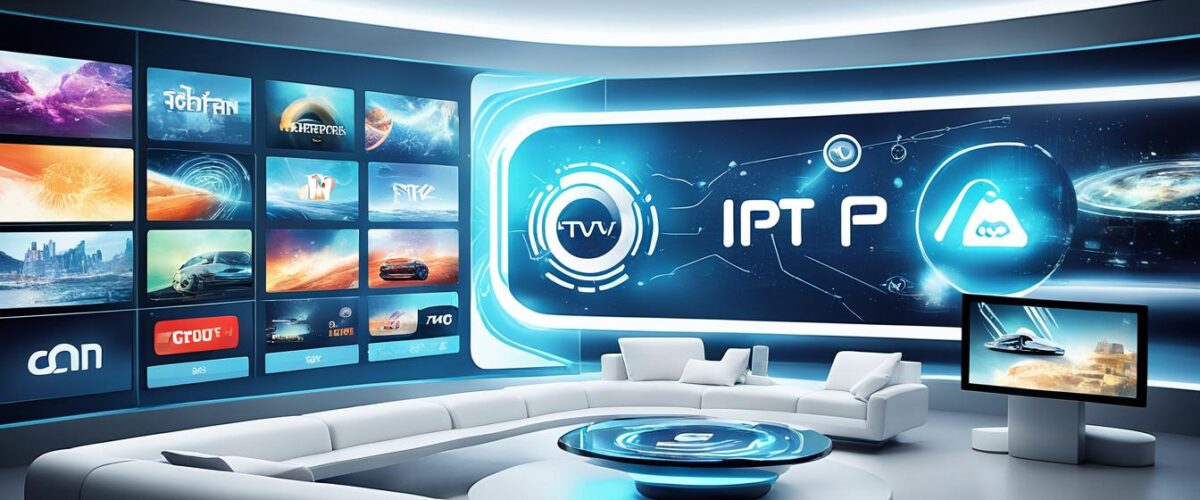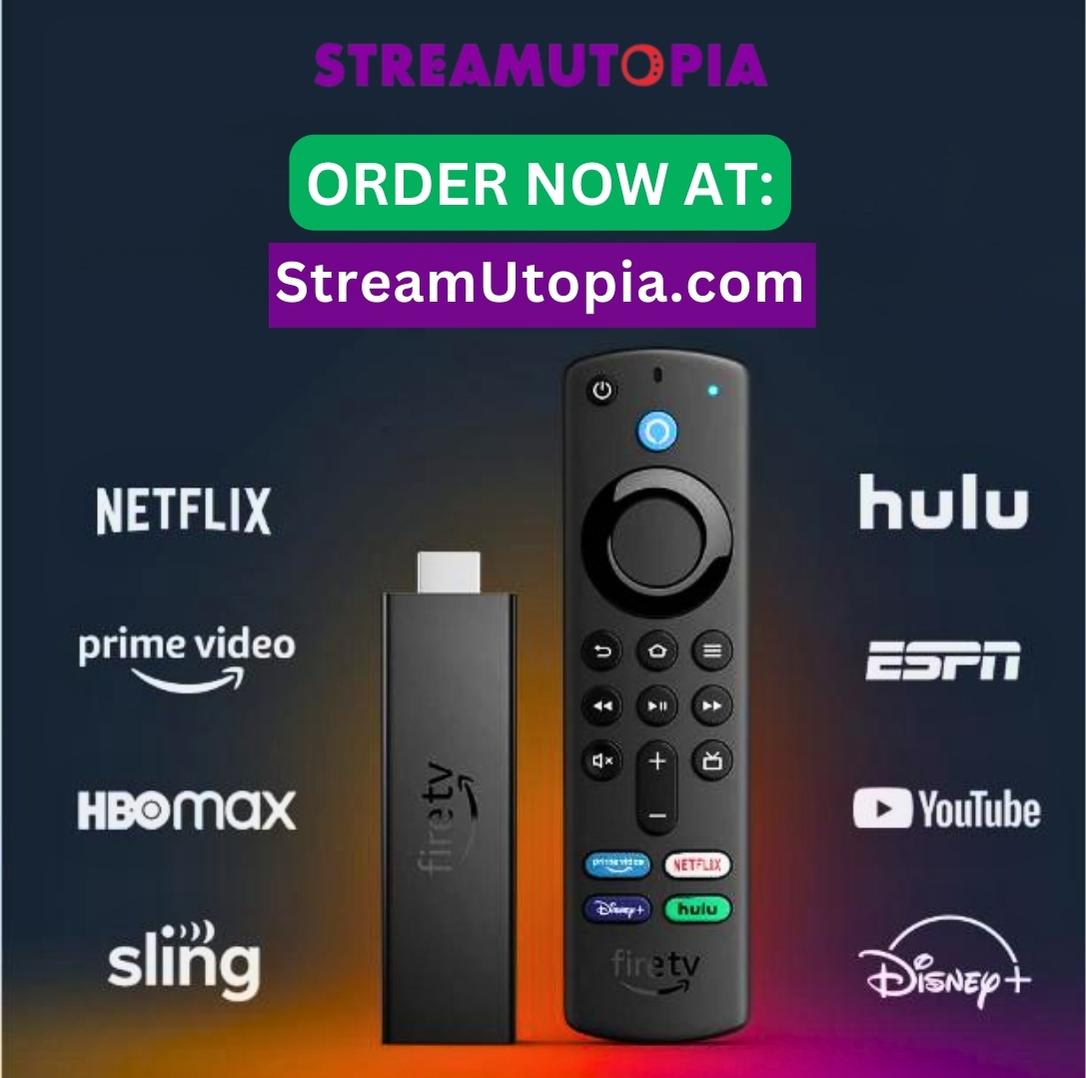Did you know that IPTV, or Internet Protocol Television, is projected to reach a market value of $150 billion by 2023? With the rise of streaming services and the increasing demand for digital content, IPTV has emerged as a game-changer in the world of television. As technology advances and consumer preferences evolve, it’s important to stay ahead of the trends to provide a seamless and immersive viewing experience for users.
Key Takeaways:
- 1. IPTV market is expected to reach $150 billion by 2023.
- 2. Streaming services are driving the growth of digital content delivery.
- 3. User experience enhancements and AI integration are shaping the future of IPTV.
- 4. OTT platforms are dominating the IPTV market with major media players.
- 5. Customization, personalization, security, and privacy are key considerations in IPTV.
The Introduction of 5G and its Impact on IPTV
The introduction of 5G technology is set to revolutionize the IPTV industry, presenting new opportunities for IPTV platform trends and IPTV business opportunities. With its promise of faster internet speeds and enhanced connectivity, 5G integration will redefine the way content is streamed and accessed, influencing the internet access speed for IPTV services. As a result, viewers can expect improved video quality, lower buffering times, and a more seamless streaming experience.
One of the most significant advantages of 5G integration is its potential to unlock immersive streaming technology. With its enhanced reliability and ultra-high speeds, 5G will open doors for innovative features such as virtual reality (VR) and 360-degree live streaming. These advancements will take IPTV services to a whole new level, providing viewers with immersive and interactive entertainment experiences.
Moreover, the introduction of 5G brings enormous market potential for businesses in the IPTV industry. The increased bandwidth and faster connectivity provided by 5G networks create an ideal environment for delivering high-quality content to a broader audience. This presents lucrative opportunities for content providers, service operators, and technology vendors to expand their customer base and explore new revenue streams.
To illustrate the impact of 5G on the IPTV industry, let’s take a look at the following table:
| 5G Integration and its Impact on IPTV | |
|---|---|
| Faster internet speeds | Enhanced streaming experience with reduced buffering |
| Improved video quality | Enhanced visual experience for viewers |
| Immersion streaming technology | Potential for VR and 360-degree live streaming |
| Expanded market potential | New business opportunities and revenue streams |
This table highlights the key benefits of 5G integration in the IPTV industry, showcasing how it enhances the streaming experience, improves video quality, enables immersive streaming technology, and creates new business opportunities.
As the deployment of 5G continues to expand worldwide, the future of IPTV looks promising. Providers, operators, and viewers alike are eagerly anticipating the arrival of 5G networks to unlock the full potential of IPTV services.

The Rise of Immersive Streaming Technology
Immersive streaming technology is revolutionizing the way we consume digital content. Thanks to advancements in bandwidth and 5G connectivity, the future of IPTV (Internet Protocol Television) is poised to deliver a more captivating and immersive viewing experience. With a recommended bandwidth of 30 Mbps, users can now stream 4K videos seamlessly, allowing for a higher level of detail and clarity in visuals. This advancement in picture quality enhances the overall viewing experience, making it feel more lifelike and engaging.
But it doesn’t stop there. The emergence of virtual reality (VR) and 360-degree streaming takes immersion to a whole new level. Through VR technology, viewers can step into a virtual world and experience content in an entirely different way. Whether it’s exploring a foreign destination, attending a live concert, or even participating in a thrilling adventure, virtual reality adds a new dimension to entertainment.
Furthermore, 360-degree streaming allows viewers to have a complete view of their surroundings, creating a truly immersive experience. Whether it’s watching a sports event from the best seat in the house or being able to look in any direction during a live performance, 360-degree streaming brings a sense of presence and interactivity that traditional streaming cannot match.

The Impact on Industries
Immersive streaming technology not only benefits consumers but also opens up new possibilities for various industries. In the field of education, virtual reality can revolutionize the way students learn by providing interactive and immersive experiences that enhance understanding and engagement. Medical professionals can also utilize immersive streaming for training purposes, allowing them to practice procedures in a realistic virtual environment.
The entertainment industry is another sector that stands to benefit greatly from immersive streaming technology. Movie studios can create immersive experiences for their audiences, transporting them directly into the world of their favorite films. Gaming companies can utilize VR technology to create fully immersive gaming experiences, where players can physically interact with the virtual environment and feel like they are part of the game.
The Future of Immersive Streaming
As technology continues to advance, we can expect to see even more innovations in the world of immersive streaming. The integration of 5G networks and improved bandwidth will enable the streaming of higher quality content, pushing the boundaries of what is possible in terms of visual fidelity. Additionally, as VR and 360-degree streaming become more prevalent, we can anticipate a wider range of content offerings and increased adoption across various platforms.
In Summary
Immersive streaming technology, powered by advancements in bandwidth and 5G connectivity, is transforming the way we consume digital content. With high-quality 4K video streaming, virtual reality experiences, and 360-degree live streaming, viewers can immerse themselves in a world of entertainment like never before. This technology not only enhances the viewing experience for consumers but also opens up new opportunities across industries. As the future unfolds, we can look forward to even more exciting and immersive streaming experiences to come.
The Dominance of Major Media Players in the IPTV Market
The IPTV market is evolving rapidly, and one of the significant shifts is the dominance of major media players. Companies like Netflix, Disney Plus, HBO Go, Apple TV, Comcast, and AT&T are entering the market with their own OTT platforms and IPTV services. This surge of competition has created a dynamic and diverse streaming landscape for consumers.
These major media giants recognize the immense potential of the IPTV market and are leveraging their expertise and resources to offer compelling content and user experiences. With their extensive libraries of movies, TV shows, and original programming, they are attracting a large customer base.

| Major Media Giants | OTT Platforms |
|---|---|
| Netflix | Netflix |
| Disney Plus | Disney Plus |
| HBO Go | HBO Go |
| Apple TV | Apple TV |
| Comcast | Comcast |
| AT&T | AT&T |
Furthermore, the dominance of these major media players has led to exponential growth in advertising revenue for OTT platforms. As more consumers embrace streaming services, advertisers realize the effectiveness of targeted advertising on these platforms. This trend is reshaping the advertising landscape and revealing new opportunities for brands to reach their desired audiences.
Their dominance has also sparked collaborations and partnerships between media companies, telecom operators, and technology providers. These alliances aim to enhance the viewer experience by offering seamless integrations, improved content discovery, and personalized recommendations.
OTT Platform Subscriptions
- Netflix
- Disney Plus
- HBO Go
- Apple TV
The entrance of major media players into the IPTV market has created a win-win situation for both consumers and content creators. Consumers have access to a vast array of high-quality content, while content creators have a platform to showcase their work to a global audience.
As the dominance of major media players in the IPTV market continues to grow, we can expect an even more competitive landscape with increased innovation, diverse content offerings, and further enhancements to the viewer experience.
The Rise of Android TV and Apple TV
Android TV and Apple TV have emerged as key players in the rapidly evolving IPTV landscape. Both these platforms offer enhanced features and user-friendly interfaces, revolutionizing the way people consume television content.
Android TV: A Scalable IPTV Solution
Android TV is gaining popularity among IPTV operators due to its scalability and flexibility. It allows operators to leverage the power of Android and offer a seamless TV experience to their customers. With the rise of Linux-based set-top boxes, more operators are adopting Android TV as their preferred platform to deliver high-quality TV services.
Android TV provides access to a wide range of streaming apps and services, making it a versatile choice for viewers. Its user-friendly interface and customizable home screen ensure a seamless and personalized experience. By integrating Android TV into their offerings, IPTV operators can attract a larger customer base and meet the evolving demands of the digital streaming era.
Apple TV: Disrupting Traditional TV Experiences
Apple TV has made waves in the industry with its innovative TV presentation and collaboration with telecom operators. By working closely with these operators, Apple TV has introduced new TV services that are disrupting traditional TV experiences.
Apple TV offers a seamless integration of streaming apps, allowing viewers to access a vast library of content from various sources. Its user-friendly interface and advanced features provide a unique viewing experience. From Siri voice control to AirPlay mirroring and HomeKit integration, Apple TV offers a comprehensive ecosystem that enhances the overall TV experience.

Comparison: Android TV vs. Apple TV
| Feature | Android TV | Apple TV |
|---|---|---|
| Platform | Linux-based set-top boxes | Apple TV box |
| User Interface | Customizable home screen | Intuitive and user-friendly |
| Content Accessibility | Wide range of apps | Extensive library and integration with Apple ecosystem |
| Additional Features | Google Assistant integration | Siri voice control, AirPlay mirroring, and HomeKit integration |
Both Android TV and Apple TV are driving the future of IPTV with their innovative technologies and capabilities. They are shaping the way viewers consume television content, offering a wide range of options and a seamless user experience. Whether it’s through Android TV’s scalability or Apple TV’s disruption of traditional TV experiences, these platforms are redefining the IPTV landscape.
OTT and 4K Integration
The integration of OTT (Over-The-Top) and 4K technology is revolutionizing the IPTV industry. With the growing demand for high-quality content, the availability of 4K live streaming and 4K video on demand is changing the way viewers consume their favorite shows and movies.
Platforms like Zattoo are at the forefront of this transformation, offering a seamless OTT setup that delivers 4K non-live and live content. This means that viewers can now enjoy their favorite programs in stunning 4K resolution, whether they’re streaming on a TV or a smartphone. The crystal-clear visuals and enhanced picture quality create an immersive viewing experience like never before.
Furthermore, the repertoire of 4K/UHD (Ultra High Definition) channels is expanding rapidly. Channels like Insight TV, Now 4K, and Festival 4K are bringing breathtaking visuals to viewers, showcasing the full potential of 4K content.
To fully understand the impact of OTT and 4K integration in the IPTV industry, let’s take a closer look at the benefits and implications of this technological advancement.
Benefits of 4K Integration:
- Enhanced Visual Experience: 4K resolution delivers a level of detail and clarity that immerses viewers in the content.
- Sharper Image Quality: With four times the number of pixels compared to standard HD, 4K provides a sharper and more lifelike image.
- Richer Colors: 4K content offers a wider color gamut, allowing for more vibrant and accurate color reproduction.
- Future-Proof Technology: As 4K TVs become more affordable and accessible, integrating 4K technology ensures compatibility and longevity.
The Implications of OTT and 4K Integration:
The seamless integration of OTT and 4K technology brings forth a host of implications for the IPTV industry:
- Increased Viewer Engagement: The availability of 4K content attracts viewers and keeps them engaged with visually stunning visuals.
- Improved Differentiation: Providers who offer 4K live streaming and video on demand stand out in a competitive market, providing a unique selling point.
- Higher Subscriber Retention: Viewers who experience the enhanced quality of 4K content are more likely to become loyal subscribers.
- Expanded User Base: As 4K TVs become more prevalent, the demand for 4K content increases, attracting a broader audience.
Overall, the integration of OTT and 4K technology in the IPTV industry brings significant advantages for providers and viewers alike. As the availability of 4K content expands and technology continues to advance, the future of IPTV promises a visually captivating and immersive streaming experience.

Customization and Personalization in IPTV
Customization and personalization have become essential aspects of the IPTV industry. With platforms like Netflix leading the way, viewers now expect personalized content recommendations tailored to their unique interests and preferences. To meet this demand, IPTV providers are leveraging advanced technologies such as artificial intelligence and user data to offer customized content discovery and enhance the overall user experience.
One of the key drivers behind this trend is the success of platforms like Netflix, which has revolutionized the way viewers discover and consume content. By analyzing user preferences and behavior, Netflix’s recommendation system provides personalized content suggestions that cater to individual tastes. This level of content customization has not only set a new standard for user expectations but has also led to increased engagement and viewer satisfaction.
IPTV providers are following suit by integrating similar customization and personalization features into their platforms. By leveraging AI algorithms and comprehensive user data, these providers can offer content recommendations that align with users’ viewing habits, interests, and preferences. Whether it’s suggesting new TV shows or movies, or introducing users to niche content that matches their tastes, these personalized recommendations enhance the user experience and make content discovery more efficient and enjoyable.
In addition to customized recommendations, IPTV providers are also implementing user preference features that allow viewers to further personalize their content consumption. These features may include the ability to create personalized playlists, save favorite shows or movies for later, and customize subtitles and audio options.
Netflix’s success in content customization and personalization has had a significant impact on the IPTV industry. It has not only raised the bar for user expectations but has also demonstrated the value and benefits of customized content discovery. As a result, IPTV providers are increasingly embracing these strategies to attract and retain users.
The demand for more innovative ways to discover and consume content in the IPTV space continues to grow. Viewers are seeking more personalized and tailored experiences that align with their preferences. With advancements in technology and the increasing availability of user data, customization and personalization in IPTV will continue to evolve, transforming the way viewers engage with and enjoy their favorite content.
The Benefits of Content Customization and Personalization in IPTV
- Enhanced user experience: Personalized content recommendations and user preference features create a more tailored and enjoyable viewing experience for users.
- Improved content discovery: Customized recommendations help users discover new content that aligns with their interests and preferences, expanding their viewing options.
- Increased engagement and satisfaction: By providing content that matches users’ preferences, IPTV platforms can boost viewer engagement and satisfaction.
- Efficient content consumption: Personalized playlists and other user preference features make it easier for viewers to access and consume their favorite content.
Security, Privacy, and Monetization in IPTV
As the popularity of IPTV continues to grow, the need for robust security measures and privacy protocols becomes paramount. Providers in the industry are taking proactive steps to protect user data by implementing encryption and authentication protocols. These security measures ensure that sensitive information remains secure and out of the hands of unauthorized individuals.
Another important aspect of the future of IPTV is monetization. With the rise of subscription fatigue among consumers, companies are exploring alternative monetization models to attract and retain subscribers. One such model is advertising, where companies partner with brands to display targeted ads during streaming sessions. This form of monetization allows consumers to access IPTV content for free or at a lower cost.
Pay-per-view is another monetization model gaining traction in the IPTV industry. This model offers viewers the flexibility to pay for individual programs or events rather than subscribing to an entire package. This gives users the freedom to choose and pay only for the content they are interested in, reducing subscription fatigue and increasing customer satisfaction.
It’s important to strike a balance between implementing effective security measures, protecting user privacy, and exploring innovative monetization models in the IPTV industry. By doing so, providers can not only meet consumer demands but also ensure a sustainable and profitable future for the industry.
Security Measures
| Security Measures | Description |
|---|---|
| Robust Encryption | Implementing strong encryption algorithms to protect user data during transmission and storage. |
| Authentication Protocols | Using authentication protocols to verify the identity of users and prevent unauthorized access. |
Monetization Models
| Monetization Models | Description |
|---|---|
| Advertising | Partnering with brands to display targeted ads during streaming sessions as a form of revenue generation. |
| Pay-per-view | Allowing viewers to pay for individual programs or events rather than subscribing to a full package, providing flexibility and reducing subscription fatigue. |
Conclusion
The future of IPTV is bright and filled with exciting innovations that are reshaping the entertainment industry. With the integration of 5G technology, viewers can expect faster internet speeds and improved content delivery, providing them with a seamless and immersive streaming experience. This enhanced viewer experience is further enhanced by the rise of Android TV and Apple TV, offering user-friendly interfaces and disruptive TV presentations.
The dominance of major media players in the IPTV market, such as Netflix, Disney Plus, HBO Go, Apple TV, Comcast, and AT&T, is revolutionizing the streaming landscape. Their entry into the market with their own OTT platforms has created a dynamic and diverse selection of content for consumers to enjoy. Additionally, the accessibility of 4K content and the integration of OTT platforms are opening up new possibilities for entertainment, enabling viewers to indulge in stunning visuals and personalized content recommendations.
As technology continues to advance, the future of IPTV holds immense potential. With constant innovations and advancements in user experience enhancements, the entertainment industry is set to witness a transformation like never before. The seamless streaming experience, personalized content discovery, and endless entertainment options make IPTV an exciting platform for both viewers and industry players. By embracing these developments, IPTV providers and businesses can stay ahead of the curve and offer their customers an exceptional and unforgettable entertainment experience.
Frequently Asked Questions (FAQ)
What is IPTV?
What are some future trends in the IPTV industry?
How will 5G technology impact IPTV?
What is immersive streaming technology?
Which major media players dominate the IPTV market?
What are Android TV and Apple TV?
How is OTT and 4K technology being integrated into IPTV?
How is customization and personalization being implemented in IPTV?
How are security, privacy, and monetization addressed in IPTV?
What does the future hold for IPTV?






